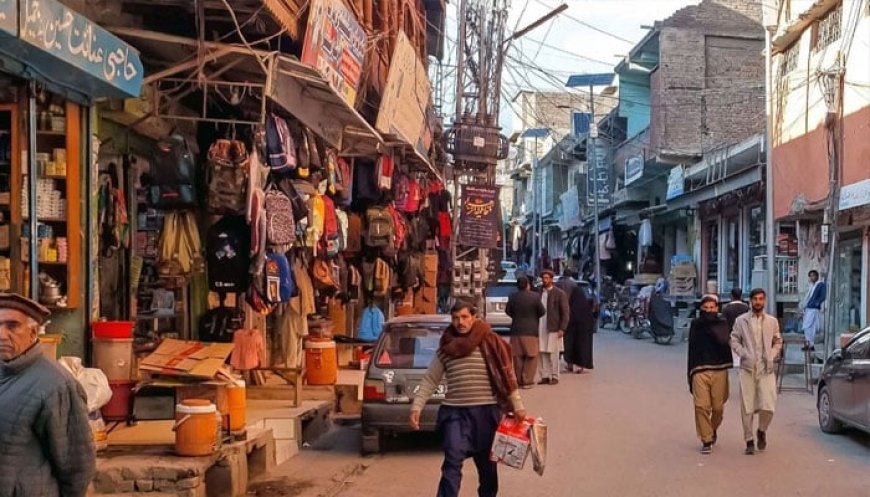First convoy to Kurram departs today as Tal-Parachinar road reopens after three months

1. KP CM's advisor Barrister Saif to see off convoy carrying vital goods for crisis-hit region from Tal
Vital Supply Convoy Traverses Tal-Parachinar Road as Key Route Reopens After Peace Agreement
The first convoy carrying essential goods is set to travel along the Tal-Parachinar road today (Saturday), marking the reopening of this crucial route connecting Kurram district to the rest of Pakistan after a three-month closure. The reopening follows a peace agreement brokered between warring tribes in the restive region.
Departing from Chapri, Tal, the convoy comprises 75 heavy vehicles transporting medicines, oil, wheat, and other essential supplies to Parachinar under stringent security provided by police and Frontier Corps (FC).
Khyber Pakhtunkhwa Chief Minister's Adviser, Barrister Saif, who arrived in Kohat last night, will oversee the departure of the convoy. Kohat’s commissioner, deputy inspector general, and other police officials will accompany him.
Efforts to Ensure Peace and Security
Earlier, Khyber Pakhtunkhwa Chief Secretary Nadeem Aslam Chaudhry emphasized that peace committees, consisting of local residents, tribal elders, and leaders representing various sects and communities, would oversee the convoy’s protection and ensure adherence to the peace agreement.
Passenger vehicles are also expected to resume operations in convoy form in the coming days.
As part of the peace pact, local residents have pledged to surrender their weapons to the state within 15 days, while the dismantling of private bunkers is set to be completed within a month.
Significance of the Peace Agreement
The highway’s reopening is a pivotal step toward normalizing life in the region, facilitating the flow of goods, and fostering communal harmony. The peace agreement, reached after extensive negotiations in a grand jirga held in Kohat, includes 14 points aimed at restoring stability in Kurram. Malik Sawab Khan, a jirga member, confirmed the accord was signed by 45 representatives from each party.
The Khyber Pakhtunkhwa government has warned that any group resorting to violence after the dismantling of bunkers will be treated as terrorists.
Barrister Saif reiterated the Apex Committee’s decision to clear Kurram of weapons and private fortifications, emphasizing that these steps are critical for long-term peace.
Background of the Kurram Crisis
Kurram, home to over 600,000 residents near the Afghan border, has long been a hotspot for sectarian violence. Despite repeated truces, tensions escalated in recent months, with clashes since July claiming over 200 lives.
The prolonged closure of the Tal-Parachinar road exacerbated a humanitarian crisis, leaving medicine and oxygen supplies critically low. Reports suggest over 100 children may have died due to medicine shortages, though Barrister Saif has denied these claims.
Protests erupted in Karachi and within Kurram, with demonstrators demanding road reopenings and aid for affected families. Security concerns, including attacks on passenger vehicles and tribal clashes, had delayed relief efforts.
Declared a disaster-hit district, Kurram saw authorities airlift medical supplies and evacuate critical patients during the crisis. The recent peace accord is a significant milestone in the government’s efforts to resolve a conflict spanning over a century.
Barrister Saif reaffirmed the government’s commitment to achieving a sustainable and permanent resolution to the region’s longstanding issues.


















































